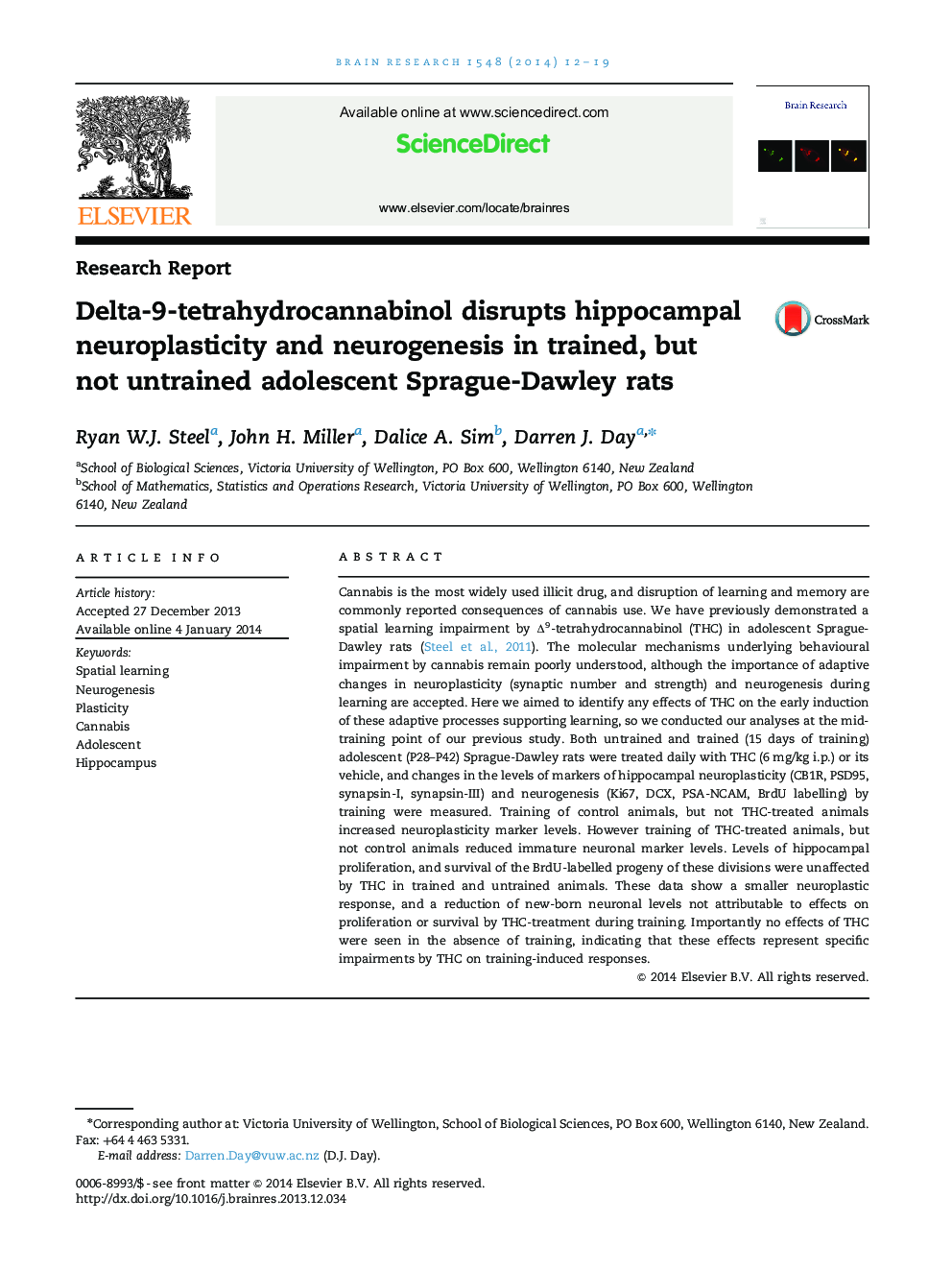| Article ID | Journal | Published Year | Pages | File Type |
|---|---|---|---|---|
| 4324475 | Brain Research | 2014 | 8 Pages |
•Training increased hippocampal neuroplasticity, and this response to training was reduced by THC.•Markers of hippocampal new-born neurons were reduced by training in THC-treated animals only.•THC did not affect reduced hippocampal proliferation or increased cell survival by training.•THC specifically impaired responses to training, since no effect was seen in untrained animals.•These disruptions by THC precede the emergence of measurable learning impairment.
Cannabis is the most widely used illicit drug, and disruption of learning and memory are commonly reported consequences of cannabis use. We have previously demonstrated a spatial learning impairment by ∆9-tetrahydrocannabinol (THC) in adolescent Sprague-Dawley rats (Steel et al., 2011). The molecular mechanisms underlying behavioural impairment by cannabis remain poorly understood, although the importance of adaptive changes in neuroplasticity (synaptic number and strength) and neurogenesis during learning are accepted. Here we aimed to identify any effects of THC on the early induction of these adaptive processes supporting learning, so we conducted our analyses at the mid-training point of our previous study. Both untrained and trained (15 days of training) adolescent (P28–P42) Sprague-Dawley rats were treated daily with THC (6 mg/kg i.p.) or its vehicle, and changes in the levels of markers of hippocampal neuroplasticity (CB1R, PSD95, synapsin-I, synapsin-III) and neurogenesis (Ki67, DCX, PSA-NCAM, BrdU labelling) by training were measured. Training of control animals, but not THC-treated animals increased neuroplasticity marker levels. However training of THC-treated animals, but not control animals reduced immature neuronal marker levels. Levels of hippocampal proliferation, and survival of the BrdU-labelled progeny of these divisions were unaffected by THC in trained and untrained animals. These data show a smaller neuroplastic response, and a reduction of new-born neuronal levels not attributable to effects on proliferation or survival by THC-treatment during training. Importantly no effects of THC were seen in the absence of training, indicating that these effects represent specific impairments by THC on training-induced responses.
